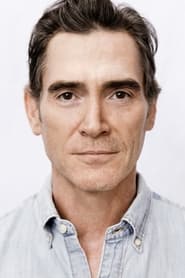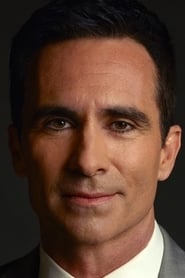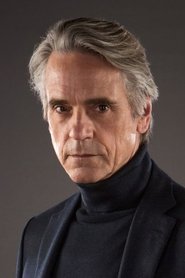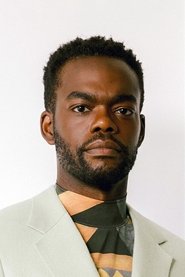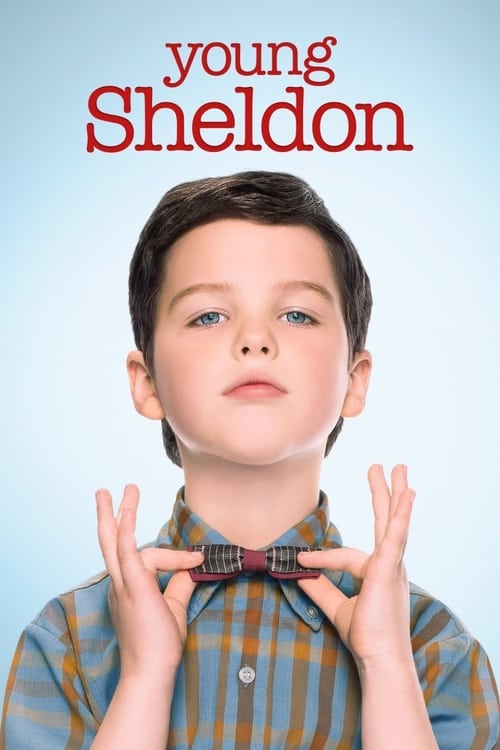
Ask Your Own Question
What is the plot?
The Morning Show opens with a dramatic scene where the audience is introduced to Alex Levy, a co-anchor of a popular morning news show. She is seen preparing for the day, showcasing her polished exterior and professional demeanor. However, the atmosphere is tense as news breaks about her co-anchor, Mitch Kessler, being fired due to allegations of sexual misconduct. The fallout from this news is immediate and chaotic, with Alex receiving calls from producers and network executives, all while trying to maintain her composure on air.
As the episode progresses, Alex grapples with the implications of Mitch's firing, reflecting on their long-standing partnership and the personal betrayal she feels. She is conflicted, torn between her loyalty to Mitch and the moral outrage surrounding the allegations. The network's executives, including the ambitious and calculating Cory Ellison, push for a new direction for the show, emphasizing the need for a fresh face to replace Mitch. Alex is pressured to adapt to the changing landscape of the media industry, which is now under scrutiny for its treatment of women.
The narrative shifts to Bradley Jackson, a field reporter who is known for her fiery personality and unfiltered opinions. After a viral video of her confronting a group of protesters gains traction, she is invited to audition for the role of co-anchor on The Morning Show. Bradley is initially skeptical of the corporate media world and its ethics but is drawn in by the opportunity to make a difference and have her voice heard. Her audition is intense, showcasing her raw talent and passion, which impresses the network executives.
As Alex and Bradley's paths converge, Alex feels threatened by Bradley's potential and the possibility of being overshadowed. The tension escalates when Alex learns that Bradley has been chosen as Mitch's replacement. This decision leaves Alex feeling betrayed and insecure, as she struggles to maintain her position and relevance in the show. Meanwhile, Bradley is excited yet apprehensive about stepping into the spotlight, aware of the challenges that come with the role.
The show delves deeper into the personal lives of the characters, revealing Alex's strained relationship with her husband, who is frustrated with her dedication to work over family. Alex's emotional turmoil is palpable as she navigates her professional responsibilities while dealing with her personal life. She seeks solace in her friendship with Mitch, who is now a pariah, but their conversations are fraught with tension as she confronts him about the allegations.
As the season progresses, the dynamics between Alex, Bradley, and Cory become increasingly complex. Cory manipulates situations to his advantage, often pitting Alex and Bradley against each other. He recognizes the potential for ratings and controversy, using their rivalry to boost the show's profile. Alex, feeling cornered, begins to question her own values and the integrity of the show she has dedicated her life to.
In a pivotal moment, Alex confronts Cory about the direction of the show and the ethical implications of their decisions. She expresses her desire to take a stand against the toxic culture that has permeated the industry. This confrontation marks a turning point for Alex, as she begins to reclaim her voice and agency within the network.
The season culminates in a high-stakes live broadcast where tensions reach a boiling point. Alex and Bradley are forced to work together under immense pressure, and their relationship evolves as they confront their shared challenges. The broadcast becomes a platform for both women to address the issues of sexual harassment and the need for accountability in the workplace. Their emotional performances resonate with viewers, leading to a powerful moment of solidarity.
In the final scenes, the aftermath of the broadcast leaves both Alex and Bradley reflecting on their journeys. Alex realizes that she must redefine her identity beyond the confines of the show, while Bradley contemplates the responsibilities that come with her newfound fame. The season ends on a cliffhanger, with the future of The Morning Show hanging in the balance, setting the stage for further exploration of the characters' struggles and the evolving media landscape.
What is the ending?
In the ending of "The Morning Show" Season 1, Alex Levy and Bradley Jackson confront the fallout from the sexual misconduct scandal surrounding Mitch Kessler. The season culminates in a tense and emotional finale where Alex decides to take a stand against the network's handling of the situation, while Bradley grapples with her newfound role and the implications of her actions. The season concludes with a powerful moment of unity between Alex and Bradley as they prepare to face the future together, but the uncertainty of their positions looms large.
As the final episode unfolds, the tension is palpable. The scene opens in the aftermath of the explosive revelations about Mitch Kessler, the former co-anchor of "The Morning Show." Alex Levy, played by Jennifer Aniston, is visibly shaken, grappling with the betrayal of her longtime colleague and friend. She stands in her dressing room, staring at her reflection, her emotions a mix of anger, confusion, and a deep sense of loss. The camera lingers on her face, capturing the weight of the moment as she prepares for the broadcast.
Cut to the studio, where the atmosphere is charged with anxiety. The crew is on edge, aware that the show is under scrutiny like never before. Alex walks onto the set, her demeanor a blend of professionalism and vulnerability. She takes her seat, and the broadcast begins. The opening segment is tense, as Alex and her new co-anchor, Bradley Jackson, portrayed by Reese Witherspoon, navigate the difficult topic of the scandal. The two women, once at odds, now share a common purpose, but the underlying tension is evident.
As the show progresses, Alex makes a bold decision. She addresses the audience directly, expressing her regret for not speaking out sooner and acknowledging the pain caused by Mitch's actions. Her voice trembles with emotion, and the camera captures the rawness of her vulnerability. This moment is pivotal, as it marks a turning point for Alex, who has often been portrayed as a powerful yet conflicted figure. She is no longer just a news anchor; she is a woman taking a stand.
Meanwhile, Bradley is grappling with her own internal conflict. She has risen to prominence through her fearless reporting, but she is also aware of the personal cost of her newfound fame. In a private moment, she reflects on her journey, the sacrifices she has made, and the relationships she has strained. The weight of her choices hangs heavy on her shoulders, and the audience can feel her determination to do the right thing, even as she faces backlash from the network and the public.
As the episode nears its climax, the tension escalates. Alex and Bradley find themselves united in their fight against the network's attempts to downplay the scandal. They confront the executives, demanding accountability and transparency. The scene is charged with emotion, as both women express their frustrations and fears. The stakes are high, and the future of the show hangs in the balance.
In the final moments, Alex and Bradley stand together, ready to face whatever comes next. They share a look of solidarity, a silent acknowledgment of their shared struggle and the bond they have forged through adversity. The camera pulls back, capturing the two women framed against the backdrop of the bustling studio, a symbol of their resilience and determination.
The season ends on a note of uncertainty, leaving viewers to ponder the implications of their choices. Alex's fate remains unclear, as does Bradley's, but one thing is certain: they have both transformed through their experiences. The final shot lingers on their faces, a testament to their strength and the challenges that lie ahead, encapsulating the essence of the series--a story of power, vulnerability, and the fight for truth in a complex world.
Is there a post-credit scene?
The Morning Show, Season 1, does not have a post-credit scene. The episodes conclude without any additional scenes or content after the credits roll. Each episode wraps up its narrative within the main storyline, focusing on the complex dynamics between the characters and the unfolding drama surrounding the morning news program. The emphasis remains on the character development and the emotional stakes throughout the series, rather than including any extra scenes after the credits.
What happens to Mitch Kessler after the allegations against him are made public?
After the allegations of sexual misconduct against Mitch Kessler are made public, he is fired from the network. The fallout from the scandal is significant, affecting not only his career but also his personal relationships. Mitch struggles with the consequences of his actions and the impact on his reputation, leading to a deep sense of isolation and regret.
How does Alex Levy react to Mitch's firing and the subsequent changes at the network?
Alex Levy is initially shocked and feels betrayed by Mitch's actions, as they were longtime colleagues and friends. As the news unfolds, she grapples with her own position at the network, feeling the pressure to maintain her status while also dealing with the moral implications of the situation. Her emotional state fluctuates between anger, sadness, and a desire to support her team amidst the chaos.
What role does Bradley Jackson play in the power dynamics of the show?
Bradley Jackson, a new anchor brought in to replace Mitch, disrupts the existing power dynamics at the network. She is ambitious and unfiltered, challenging the status quo and pushing back against the established norms of the show. Her presence forces Alex to confront her own insecurities and the changing landscape of their workplace, leading to a complex relationship filled with tension and competition.
How does the relationship between Alex and Bradley evolve throughout the season?
The relationship between Alex and Bradley evolves from initial hostility and competition to a more complex bond as they navigate the challenges of the network together. Alex initially sees Bradley as a threat, but as they face external pressures and personal struggles, they begin to understand each other better. This evolution is marked by moments of vulnerability, collaboration, and ultimately a shared goal of redefining their roles in the wake of the scandal.
What impact does the #MeToo movement have on the characters in The Morning Show?
The #MeToo movement profoundly impacts the characters, particularly Alex and the women in the newsroom. It forces them to confront their own experiences with sexism and harassment in the workplace. Characters like Alex and Bradley find themselves at the forefront of discussions about accountability and change, leading to personal revelations and a reevaluation of their careers and relationships. The movement serves as a catalyst for their growth and the transformation of the show's culture.
Is this family friendly?
"The Morning Show," season 1, contains several elements that may not be considered family-friendly or suitable for children and sensitive viewers. Here are some potentially objectionable aspects:
-
Strong Language: The show features frequent use of profanity, which may be inappropriate for younger audiences.
-
Sexual Content: There are scenes that involve sexual situations and discussions, including references to infidelity and workplace relationships.
-
Themes of Harassment: The series addresses serious topics such as sexual harassment in the workplace, which may be distressing for some viewers.
-
Emotional Turmoil: Characters experience significant emotional distress, including anxiety, betrayal, and grief, which could be upsetting for sensitive viewers.
-
Substance Abuse: There are instances of characters dealing with substance abuse issues, which may not be suitable for younger audiences.
-
Intense Workplace Drama: The competitive and often cutthroat nature of the media industry is depicted, showcasing manipulation and power struggles that may be intense for some viewers.
These elements contribute to a mature narrative that may not be appropriate for children or those who are sensitive to such themes.





